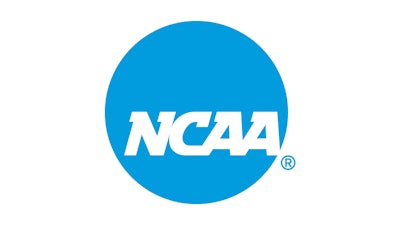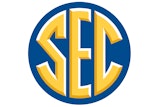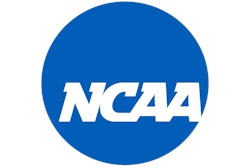
Division II delegates approved 11 of 12 legislative proposals at the division's business session of the 2023 NCAA Convention on Saturday in San Antonio.
The legislation approved via the division's one-school, one-vote process included providing more season-of-competition flexibility and spring scrimmage opportunities in football, making significant changes to some of the division's highest governance bodies, and eliminating the standardized test score requirement (SAT or ACT) from the division's initial-eligibility requirements. Additionally, the division approved legislation to expand a student-athlete's ability to seek and receive advice from individuals for the purposes of making well-informed decisions before entering into contractual agreements related to name, image and likeness.
Division II's delegates defeated a membership-sponsored proposal to expand summer access to permit signed prospective student-athletes and student-athletes in team sports to participate in individual workout sessions with a member of the coaching staff.
"While these are 'voluntary' activities, the potential pressure placed on student-athletes to take advantage of these opportunities may lead to student-athletes forgoing summer activities such as internships, study abroad or jobs, things that help our Division II student-athletes become more well-rounded individuals," Courtney Lovely Evans, director of athletics at Palm Beach Atlantic and a member of the Division II Management Council, said in opposition to the proposal that was defeated, 74 to 222.
Below is a summary of the adopted proposals:
Football changes
Division II delegates that sponsor football approved a pair of membership-sponsored proposals, both which become effective Aug. 1.
One proposal, which passed with overwhelming support, permits football players in their initial year of college enrollment at a Division II school to participate in up to three contests without using a season of competition.
"Permitting Division II freshman football players to compete in a limited number of games without using a season of competition and still having four years of competition remaining should help keep football student-athletes engaged, enrolled and improve their chances for academic success," Mike Racy, commissioner of the Mid-America Intercollegiate Athletics Association, said in the business session. "This proposal enhances the student-athlete experience for football players and hopefully will help with student retention."
The other football proposal permits a football team to scrimmage against a four-year college during its spring practice period as one of its three permissible 11-on-11 scrimmages outside the playing season. The scrimmage has to occur on or after the 10th day of the spring practice period, allowing time for student-athletes to become acclimated to full contact. Additionally, the legislation specifies that a student-athlete's participation in such a scrimmage does not trigger use of a season of competition if the student-athlete was academically eligible during the fall term.
"This proposal provides opportunities for an enhanced collegiate experience in Division II football, where student-athletes can now participate against another team in the spring that they normally wouldn't get to," Andy Peterson, director of athletics at Northwest Missouri State, said in support of the proposal. "This proposal can also impact, possibly, retention at institutions supporting football (by improving) student-athlete engagement."
Standardized test score requirement
Division II delegates overwhelmingly supported a proposal to eliminate the standardized test score requirement (SAT or ACT) from the division's initial-eligibility requirements, as well as establish a requirement of high school graduation, 16 core courses and a 2.2 grade-point average to be a qualifier and 14 core courses and a 2.5 grade-point average to be an early academic qualifier for initial eligibility requirements. Division I previously made this legislative change to its initial eligibility requirements. The change becomes effective Aug. 1.
Governance structure
Delegates approved legislation to make changes to the decision-making authority, name and/or composition of the division's Presidents Council, Management Council, Planning and Finance Committee, and Administrative Committee.
The changes include the following provisions, effective Feb. 1, 2024:
- The Division II Presidents Council will change from 18 members to 13 and be renamed the Division II Executive Board.
- The Management Council will change to 29 voting members (currently 28) and include at least five athletics directors, five senior woman administrators, five faculty athletics representatives and two conference office staff members.
- The Division II Planning and Finance Committee will be renamed the Division II Strategic Planning and Finance Committee. The committee will expand from seven voting members to 11, including at least one member from a minority-serving school and a member of the Division II Student-Athlete Advisory Committee.
- The Division II Administrative Committee will maintain its current size (five members) but include the chair of Division II SAAC, along with the chair and vice chair of the Presidents Council (Executive Board) and Management Council.
Additionally, the legislation will enhance the duties of the Management Council to have final authority to adopt noncontroversial and intent-based amendments, administrative bylaws and regulations to govern Division II. Among other changes to its duties, the legislation provides the Management Council the authority to sponsor legislative proposals for a vote at the Convention, which previously only the Presidents Council had the authority to do.
Definition of agent, use of agents
Adopted by a wide margin, this legislative proposal redefines the term "agent" and establishes that it is permissible for a student-athlete to work with professional service providers, such as tax consultants, attorneys and marketing agents. This allows for student-athletes to obtain advice related to the student-athlete's name, image and likeness and the accompanying activities. It will still be impermissible for student-athletes (or their relatives) to receive tangible or intangible benefits from an agent or individual for professional sports opportunities or to enter into an agreement with an agent for or receive compensation or incentives related to enrollment-based decisions. The change becomes effective Aug. 1.
Other legislative changes:
The Division II delegates passed six other proposals (read more details on each proposal here (PDF)), which include the following changes:
- Adding stunt as an emerging sport for women in Division II. Stunt will join women's rugby, ice hockey, acrobatics and tumbling, equestrian and triathlon as emerging sports in Division II. (Divisions I and III approved a recommendation from the Committee on Women's Athletics to refer the proposal to add stunt as an emerging sport for women back to the committee.)
- Establishing a penalty for any active Division II member school that fails to submit its financial data by the applicable deadline. The penalty requires a school that misses the deadline to forfeit Division II institutional equal distribution funds (formerly known as enhancement funds) in the following academic year. The effective date is Aug. 1, 2025, to allow schools time to adjust to the new legislation.
- Eliminating the requirement that active Division II schools must complete the Institutional Self-Study Guide. Additionally, the Division II Membership Committee will consider the development of a new evaluation tool/process that aligns more closely with the division's revamped bylaws and policies.
- Permitting a school to begin on-court preseason basketball practice 35 days before the school's first regular-season game. Additionally, teams will be limited to no more than 25 days of countable athletically related activities during the on-court preseason practice period, providing more rest for student-athletes.
- Eliminating legislated restrictions on the availability of alcohol at Division II championships.
- Amending the timing of the Division II legislative process.
Award of Excellence
During the division's business session, Minnesota State Moorhead was awarded the 2023 Division II Award of Excellence. The award is determined by the Division II Student-Athlete Advisory Committee based on events over the past year that exemplify the Division II philosophy, community engagement and student-athlete leadership.




































